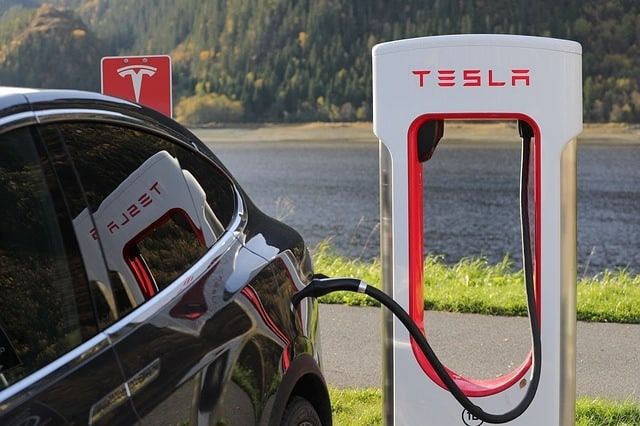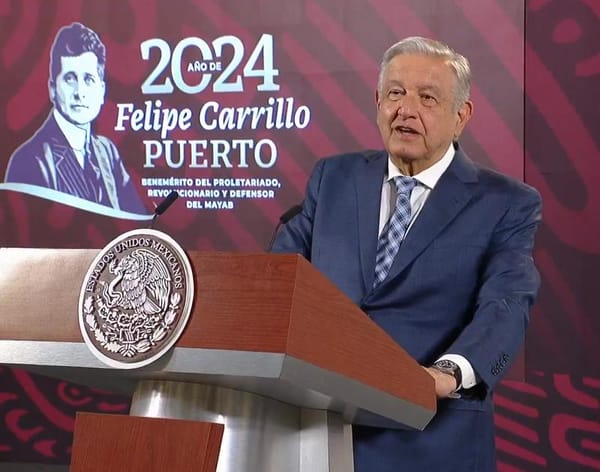The electric vehicle business in times of cheap oil and pandemic
Large companies such as Bimbo and Unilever have been gradually migrating their fleet of vehicles with diesel and gasoline to electric vehicles
The electric vehicle sector is facing one of the most important challenges in the automotive industry. The companies never imagined a scenario of cheap oil or an economic crisis derived from a global pandemic whose origin was China, one of the technological and particularly electric mobility powers.

In an exclusive interview with NotiPress, Derek Hall, founder, and CEO of the Mexican firm eZERO shared his vision on corporate value-added and strategies to build sustainable businesses in times of cheap fossil fuels and Covid-19.
For its part, eZERO markets electric utility vehicles in Mexico and is confident of its early arrival on the market, although it anticipates that in the future there will be competitors offering OEM (Original Equipment Manufacturer) units and manufacturers will have attractive offers for customers to customize the units.
Anticipating corporate challenges is an essential part of strategic business thinking, suggests the executive president of the electric mobility firm. In the face of this, a key factor for the last-mile utility brand is the mastery of electric vehicle components. It is essential to consider cultural and communication barriers when seeking to support foreign brands in products marketed in Mexico, adds the interview expert.
In this sense, knowledge and experience is key and offer a competitive advantage by having specialists with more than 15 years of experience in the electric mobility sector. The differences in relation to automotive mechanics of combustion vehicles are everything in times of cheap oil.
"Our electric charging vehicles have a very simple architecture and are extremely practical platforms," added the founder. Also, understanding the programming of battery management systems (BMS) in Mexican territory becomes a competitive advantage for the electric utility brand.
Another valuable feature that demonstrates the automotive company is the possibility of offering customers a test of their units in order to ensure real-time understanding of a new way of conducting logistics and distribution, not only for operational and cost optimization but under new business paradigms of environmental awareness. This allows companies an orderly transition to electric fleets.
Hall integrated a novel value-added feature of the electromobility firm into the business. It provides an extended warranty in partnership with Garanti-Plus, an insurance industry provider.
This gives support to the brand and transmits confidence to customers in the long term. Although in the business of vehicles that work with petroleum derivatives, guarantees are normal, the novelty consists in their adaptation to high technology units in times where massive use of electric utilities is not yet observed.
"The main focus will be to educate companies about the benefits of electricity and the support we can give," emphasized the Canadian about eZERO's most important role in Mexican territory in times of pandemic.
With this, the founder of the firm of utility vehicles designed for last-mile distribution companies intends to influence the thinking of businesses based on oil-based fuels and subtly proposes a model of greater social responsibility and consistency with environmentally friendly practices.
Electric vehicles in Mexico advance at full speed
Mexico has made minimal investments to boost sales of electric cars and even hybrid vehicles, while other countries are already wondering how to modify their incentives to avoid a heavy tax burden.
People who are looking for a new car hear that there are incentives for electric cars and begin to explore the option, but it is almost always insufficient because we have not been able to lower prices to a more affordable range and the savings from ownership, ISAN and verification are not as significant for most of our customers.
Research conducted by the International Energy Agency found that 18% of global spending on electric vehicles comes from a government source, either in the form of tax incentives or direct support. The Agency even warned that reducing government involvement will be one of the big tests for the electric segment.
In Mexico, there are no direct supports, and the payment of tenure is only mandatory in 19 states of the republic, some of which have subsidies, so the exemption from this charge does not represent a significant saving for potential buyers. The strongest tax incentive is the ISAN exemption, but this represents only between 8% and 15% of the cost of the car, and the upper limit is found in models whose cost exceeds 1.5 million pesos.
Another of the main concerns of potential buyers of electric cars is autonomy. In 2010, the government of Mexico City reached an agreement with Nissan to introduce up to 500 electric cars to its official fleets and 100 more as taxis within the city. The goal for Nissan was for the government to assist in establishing the charging infrastructure, but this was not developed at the expected speed.
According to the Federal Electricity Commission, as of July last year, there were 2,017 charging stations throughout Mexico, almost 20% of them concentrated in the capital. Last year CFE also announced that the Secretariat of Energy had given them a budget of $25 million pesos to establish one hundred new electrical lines.
Francisco Cabeza Santillana himself, the former coordinator of the Energy Saving Program of the Electric Sector (PAESE) of CFE, admitted during the announcement of this investment that most of the infrastructure had been financed by private brands that sell electric cars in Mexico, and that CFE had been limited to accompany them in the process. It was also said with confidence that the Commission would ask for more resources for this purpose in the future.
The lack of investment in this infrastructure has left Mexico far behind world leaders. Holland has 36,962 load points, with a population of just 17 million people and in a territory considerably smaller than Mexico.
Adrian Fernandez, director of Climate Initiative of Mexico, believes that has not done the work necessary for Mexicans to turn to see hybrid cars, which by price could be more attractive and have a greater impact than that currently have electricity.
Mexico must update its Vehicle Efficiency Standard that establishes the average fuel economy with which all vehicle manufacturers must comply. With a good standard and with broad, transparent and accessible information to consumers we would begin a trend of lower sales of huge and inefficient vans and would accelerate the entry of hybrid vehicles.
According to the automotive executive interviewed by the CEO, the current situation of the Mexican market could make the electric revolution that several brands are seeing not have an immediate impact on the models sold in Mexico. "The brands that will focus 100% on electric cars will have no other, but those looking for mixed catalogs will continue depending on the availability of electrolineras and their ability to break the barrier of 500 or even 400,000 pesos. It's not something that I see close.




